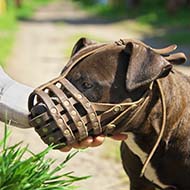Report casts doubt over Dangerous Dogs Act

Section 1 of the Dangerous Dogs Act labels certain dog breeds as inherently aggressive and dangerous to public safety.
A coalition of animal welfare groups and veterinary organisations, including the BVA, has welcomed new research that casts doubt over the Dangerous Dogs Act.
In November 2018, the Government commissioned Middlesex University to examine measures to reduce dog attacks and promote responsible ownership of all breeds of dogs and review measures to reduce dog attacks.
The final report states: “Participants almost unanimously cast doubt on the idea that breed was a cause of dog attacks noting either that dogs are not inherently dangerous if properly socialised and engaged with using appropriate behaviours, or that all dogs could be dangerous if placed in the wrong situations and handled inappropriately.”
Campaigners say the conclusion casts doubt on the evidence that the UK Government has been using to justify Section 1 of the Dangerous Dogs Act, which labels certain dog breeds as inherently aggressive and dangerous to public safety.
Commenting on the findings, Dr Samantha Gaines, the secretariat of the anti-breed specific legislation coalition group and RSPCA dog welfare expert, said: “We welcome independent research released today which casts even more serious doubt on the belief that certain breeds of dog are inherently dangerous, instead concluding that human behaviour is a key factor in dog bites and attacks.
“This research adds even more weight against breed-specific legislation (BSL) and confirms the belief of many in the welfare and veterinary sector that breed-specific legislation, which brands certain types of dogs as a greater risk to public safety, is flawed.”
The BVA has long-opposed breed-specific legislation, maintaining that all dogs, whatever their breed type or size, are capable of showing aggression. It is calling on the Government to prioritise an evidence-based, ‘deed-not-breed’ approach to dog control legislation through effective enforcement, additional research and the establishment of a centralised dog biting incidence database, among other measures.
Dr Gaines added: “We’re pleased that after years of calling for change to this legislation, which has been echoed by academics, enforcement officers and the EFRA Committee, this independent research and report adds further evidence for the need for change and recognises that other factors, including human behaviour and particularly inappropriate behaviour around dogs, are key risk factors in dog bites and aggressive behaviour.
“Given these findings, it is now imperative that the Government uses them to inform an evidence-based, ‘deed not breed’ approach to future dog control strategy and moves away from the current breed-specific approach. This goes hand in hand with encouraging responsible dog ownership and owner education.”



 The veterinary mental health charity Vetlife is inviting the veterinary community to join it for a sponsored cold-water dip.
The veterinary mental health charity Vetlife is inviting the veterinary community to join it for a sponsored cold-water dip.